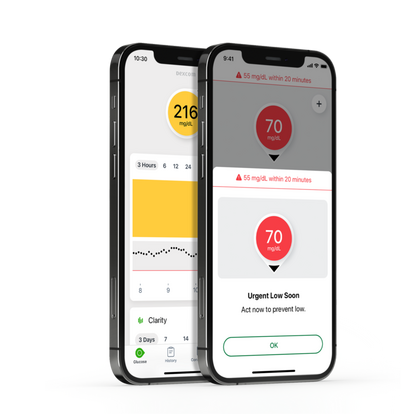Medicare expanded its coverage for continuous glucose monitoring (CGM). This is exciting news, as it means millions more people can now get on CGM who previously didn’t have coverage.
Who benefits from the expanded Medicare coverage?
People living with diabetes who are on basal insulin, as well as those who experience problematic low glucose events are now covered. Medicare will cover CGM if the following criteria are met*:
- You have been diagnosed with diabetes
- Your doctor concludes that you or your caregiver understand how to use CGM, and has ordered a prescription
- The CGM is prescribed in accordance with an FDA’s indication for its use
- You use any type of insulin or have a history of problematic low blood glucose
- You have an-person or Medicare-approved visit with your provider within 6 months of initiating CGM therapy
- You have an-person or Medicare-approved visit with your provider every 6 months after initiating CGM therapy
Why is the expanded Medicare coverage so important?
Many people living with diabetes prick their fingers and use a blood glucose meter (BGM) to check their levels. They may not know there is an easier and more effective way, or that they have coverage for it. Medicare’s expanded CGM coverage gives more people the opportunity to switch to a simpler way to manage their diabetes and get better results.

What are the benefits of CGM?
Fingersticks can be a hassle (not to mention painful), and a BGM only shows what someone’s glucose level is at that moment. The Dexcom G7 CGM System uses a small sensor worn on the body to send glucose readings to a smartphone† or hand-held display device. It tracks glucose 24/7, enabling people to check their level at any time without taking a fingerstick.†
Dexcom G7 shows if glucose levels are rising or falling, which can help you make better diabetes management decisions in the moment. Studies prove that it can help lower A1C and increase time in range.1-5 With Dexcom G7, you don’t have to manually log your glucose levels to bring to appointments. It uses your CGM data to create detailed glucose reports that you can share with your doctor electronically.§

What is problematic low blood glucose, and how can Dexcom G7 help?
Low blood glucose, also called low blood sugar or hypoglycemia, occurs when the level of glucose in your blood drops below what is healthy for you.6 Dexcom G7 has an Urgent Low Soon alert that gives a 20-minute warning before your glucose drops to an unhealthy or dangerous level. Alerts give you a chance to act quickly and avoid a potential hypoglycemic event, allowing for more peace of mind.
CMS defines problematic low blood glucose as:
- Recurring level 2 hypoglycemic events (glucose <54 mg/dL) that persist despite multiple attempts to adjust medication and/or modify the diabetes treatment plan; or,
- A history of one level 3 hypoglycemic event (glucose <54 mg/dL), characterized by altered mental and/or physical state requiring third-party assistance.
Get started on Dexcom G7
If you are living with diabetes and are on Medicare, talk to your doctor about Dexcom G7. We can help you get started with a free benefits check. Click the button below to send us some basic information.

